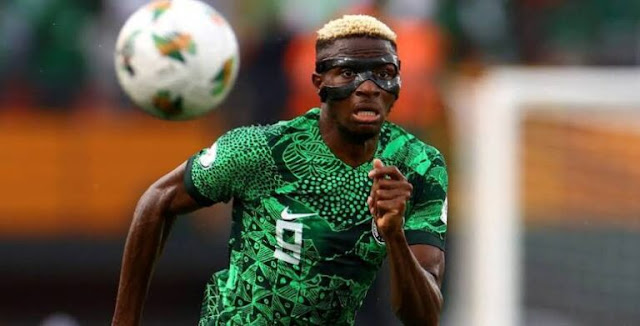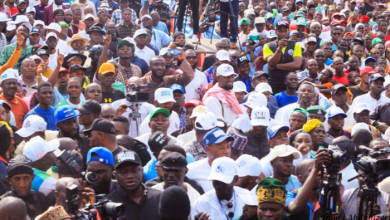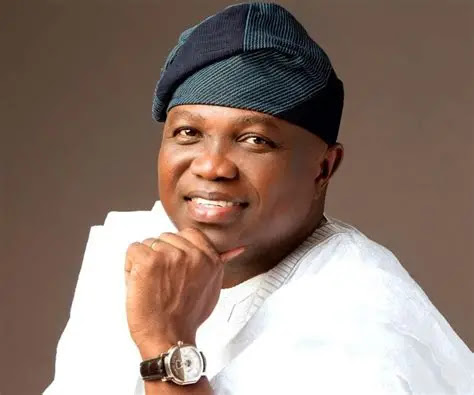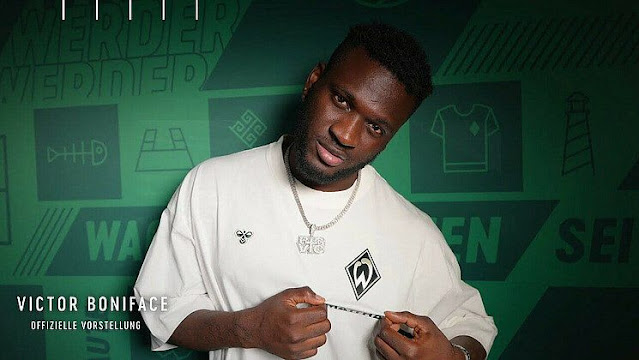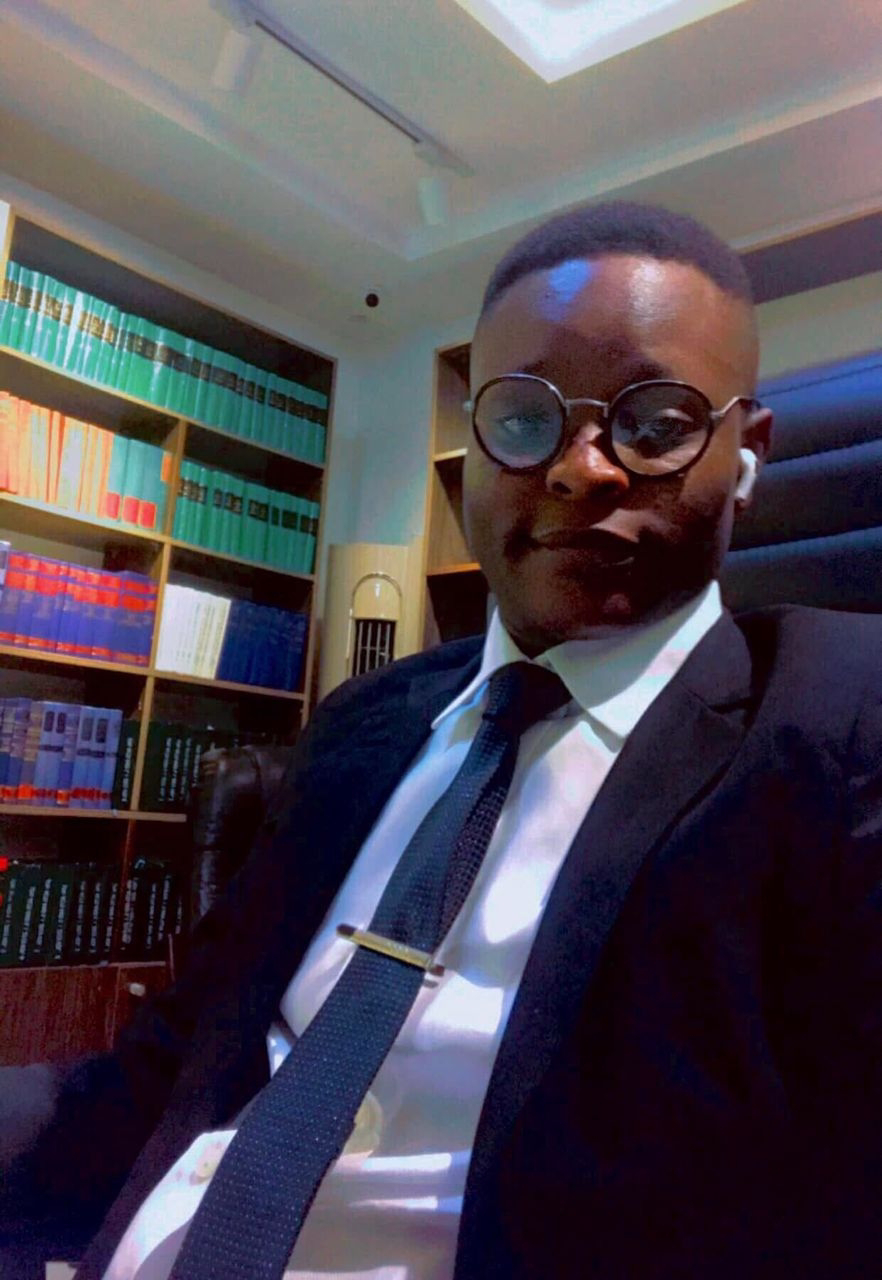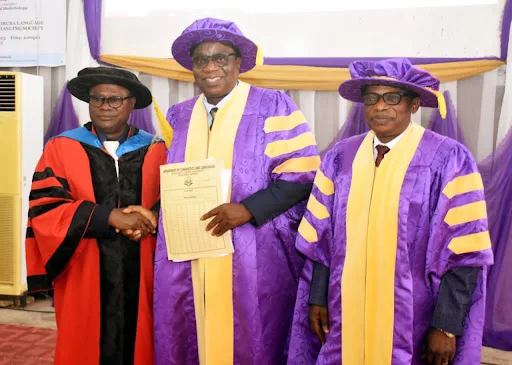In a development that has sparked renewed hope among Nigerian football fans, Napoli striker Victor Osimhen has rejoined the Super Eagles squad for two pivotal 2026 FIFA World Cup qualifying matches against South Africa and Rwanda. The 25-year-old forward, who missed Nigeria’s earlier qualifiers due to a combination of injury concerns and a fallout with former coach Finidi George, is set to lead the line as the Super Eagles face a make-or-break moment in their quest to secure a spot at the global showpiece, scheduled to be hosted by the United States, Mexico, and Canada. With Nigeria languishing in fifth place in Group C after four matches, Osimhen’s return under interim coach Augustine Eguavoen could prove decisive in turning the team’s fortunes around.
The Context: A Struggling Campaign
Nigeria’s journey in the 2026 FIFA World Cup qualifiers has been far from smooth. Drawn in Group C alongside South Africa, Rwanda, Benin, Lesotho, and Zimbabwe, the Super Eagles were expected to dominate the group and secure one of the nine automatic qualification spots allocated to African teams. However, a series of underwhelming performances has left the team in a precarious position. After four matches, Nigeria have managed only three points from three draws and one loss, placing them fifth in the six-team group. Rwanda lead the group with seven points, followed by South Africa and Benin with six points each, Zimbabwe with five, and Lesotho with two.
The Super Eagles’ struggles began with a 1-1 draw against Lesotho in Uyo, followed by another 1-1 draw against Zimbabwe in Rwanda. A 2-1 loss to Benin and a 0-0 draw against South Africa further compounded Nigeria’s woes, raising alarm bells among fans and the Nigeria Football Federation (NFF). The poor results led to the resignation of head coach Finidi George in June 2025, prompting the NFF to appoint Augustine Eguavoen as interim coach for the upcoming matches. Eguavoen, who previously led the Super Eagles to a bronze medal at the 2006 Africa Cup of Nations, now faces the daunting task of reviving Nigeria’s World Cup hopes.
The matches against South Africa on September 7, 2025, in Uyo, and Rwanda on September 10, 2025, in Kigali, are critical. A victory against South Africa, a direct rival in the group, could propel Nigeria back into contention, while a positive result against group leaders Rwanda would send a strong message about the team’s intent. With only the group winner guaranteed a spot at the 2026 World Cup, and the possibility of a playoff for the four best runners-up, the Super Eagles cannot afford further slip-ups.
Osimhen’s Return: A Beacon of Hope
Victor Osimhen’s inclusion in the 23-man squad announced by the NFF is a significant boost for Nigeria. The Napoli star, widely regarded as one of Africa’s finest talents, has been a talismanic figure for the Super Eagles since his debut in 2017. With 23 goals in 33 appearances for Nigeria, Osimhen is the team’s leading active scorer and a player capable of single-handedly turning games in their favor. His physicality, aerial prowess, and clinical finishing make him a nightmare for defenders, and his return comes at a critical juncture.
Osimhen’s absence from the earlier qualifiers was a major blow. A muscle injury sustained during the 2024/25 Serie A season with Napoli limited his availability, while a reported fallout with Finidi George over commitment and communication further complicated matters. Speculation about Osimhen’s relationship with the NFF and his national team duties swirled on social media, with some fans questioning his dedication. However, Osimhen addressed these concerns in a statement on X, saying, “My love for Nigeria and the Super Eagles is unwavering. I’m here to give everything for my country.”
Under Eguavoen, who has a reputation for man-management and fostering team unity, Osimhen appears reinvigorated. His recent performances for Napoli, where he scored four goals in the opening five matches of the 2025/26 Serie A season, suggest he is back to his best. “Victor is a world-class player, and his presence lifts the entire squad,” Eguavoen said during a press conference in Abuja. “We’ve had constructive conversations, and he’s fully committed to helping us achieve our World Cup dream.”
The Squad: A Blend of Experience and Youth
In addition to Osimhen, Eguavoen has assembled a formidable squad for the upcoming matches. The 23-man roster includes established stars like Wilfred Ndidi of Leicester City, Alex Iwobi of Fulham, and Samuel Chukwueze of AC Milan, alongside emerging talents such as Sadiq Umar of Real Sociedad and Raphael Onyedika of Club Brugge. The squad also features players who have been in fine form at their clubs, including Kelechi Iheanacho, who recently joined Sevilla, and Taiwo Awoniyi, who has been a consistent performer for Nottingham Forest.
Notably absent from the squad are Bayer Leverkusen’s Victor Boniface and AC Milan’s Fikayo Tomori, both of whom were overlooked due to fitness concerns and tactical decisions. Boniface, who recently joined Werder Bremen on loan, has yet to regain his peak form following an injury-plagued season, while Tomori’s omission has raised eyebrows given his strong performances in Serie A. Eguavoen defended the selections, stating, “We have a deep pool of talent, and we’ve chosen players who are ready to deliver right now. Victor and Fikayo are part of our plans, but we’re focusing on the best mix for these matches.”
The full squad includes goalkeepers Stanley Nwabali (Chippa United), Maduka Okoye (Udinese), and Amas Obasogie (Bendel Insurance); defenders William Ekong (Al-Kholood), Ola Aina (Nottingham Forest), Calvin Bassey (Fulham), Oluwasemilogo Ajayi (West Brom), Bruno Onyemaechi (Boavista), and Bright Osayi-Samuel (Fenerbahce); midfielders Ndidi, Iwobi, Onyedika, and Frank Onyeka (Brentford); and forwards Osimhen, Chukwueze, Iheanacho, Awoniyi, Sadiq, Moses Simon (Nantes), Ademola Lookman (Atalanta), Paul Onuachu (Southampton), Peter Olayinka (Red Star Belgrade), and Tolu Arokodare (Genk).
The Opponents: South Africa and Rwanda
The Super Eagles face formidable challenges in South Africa and Rwanda, both of whom have outperformed expectations in the qualifiers. South Africa, coached by Hugo Broos, have been a revelation, sitting second in Group C with six points. The Bafana Bafana boast a talented squad, including Burnley’s Lyle Foster, Mamelodi Sundowns’ Ronwen Williams, and Stade Reims’ Siyanda Xulu. Their 0-0 draw against Nigeria in June 2025 demonstrated their defensive resilience, and they will be confident heading into the match in Uyo.
Rwanda, the surprise leaders of Group C, have been the standout story of the qualifiers. Coached by Frank Spittler, the Amavubi have punched above their weight, defeating Benin and drawing with South Africa and Zimbabwe. Players like Djihad Bizimana and Innocent Nshuti have been instrumental in their success, and their home advantage in Kigali will make them a tough opponent. Rwanda’s rise reflects the growing competitiveness of African football, where traditional minnows are increasingly capable of challenging established powers.
For Nigeria, the key will be to assert their dominance early, particularly against South Africa. The match in Uyo, played before a passionate home crowd, offers a chance to set the tone. Osimhen’s ability to exploit South Africa’s defense, combined with the creativity of Iwobi and Lookman, could be decisive. Against Rwanda, Nigeria will need to navigate a hostile atmosphere and maintain their composure to secure a result.
The Stakes: Nigeria’s World Cup Ambitions
The 2026 FIFA World Cup represents a significant opportunity for Nigeria, a nation with a rich footballing history but a mixed record on the global stage. The Super Eagles have qualified for six World Cups (1994, 1998, 2002, 2010, 2014, and 2018) but have yet to advance beyond the Round of 16. The expanded 48-team format for 2026, with nine automatic spots for African teams, offers Nigeria a golden opportunity to return to the tournament after missing out in 2022.
However, the current qualifying campaign has exposed vulnerabilities. Nigeria’s struggles under Finidi George highlighted issues with team cohesion, tactical clarity, and finishing. Eguavoen’s appointment, while interim, brings a sense of stability, but the pressure is immense. Failure to secure at least four points from the upcoming matches could jeopardize Nigeria’s chances, potentially forcing them to rely on the playoff route, which is far from guaranteed.
Osimhen’s return is a major factor, but the team’s success will also depend on the contributions of other key players. Ndidi’s leadership in midfield, Ekong’s solidity at the back, and Lookman’s flair on the wing will be crucial. The squad’s depth, with players like Iheanacho and Chukwueze capable of changing games off the bench, gives Nigeria an edge, but they must translate their talent into results.
Osimhen’s Journey: From Lagos to Global Stardom
Victor Osimhen’s return to the Super Eagles is a testament to his resilience and determination. Born on December 29, 1998, in Lagos, Nigeria, Osimhen grew up in challenging circumstances, selling water on the streets to support his family. His talent was spotted early, and he joined Ultimate Strikers Academy before moving to Wolfsburg in Germany in 2017. After a difficult spell in the Bundesliga, Osimhen found his footing at Charleroi in Belgium and then Lille in France, where he scored 18 goals in the 2019/20 season.
His €70 million move to Napoli in 2020 marked a turning point. Osimhen played a starring role in Napoli’s 2022/23 Serie A title win, scoring 26 goals to become the league’s top scorer and earning the African Footballer of the Year award in 2023. Despite interest from clubs like Chelsea, Paris Saint-Germain, and Al-Ahli, Osimhen remained with Napoli, signing a new contract until 2027. His recent form, including a hat-trick against Sassuolo in August 2025, underscores his importance to both club and country.
Osimhen’s journey mirrors that of other Nigerian football icons like Jay-Jay Okocha and Rashidi Yekini, who overcame adversity to achieve greatness. His leadership on and off the pitch, combined with his vocal advocacy for Nigerian football, makes him a central figure in the Super Eagles’ World Cup aspirations.
The Broader Context: Nigerian Football at a Crossroads
Nigeria’s struggles in the qualifiers reflect broader challenges facing the country’s football ecosystem. Despite producing world-class talents like Osimhen, Ndidi, and Lookman, the Super Eagles have been plagued by inconsistent management, inadequate infrastructure, and internal disputes. The NFF’s decision to appoint Eguavoen as interim coach, rather than a permanent replacement for Finidi George, has drawn criticism from fans who crave stability.
The rise of teams like Rwanda and Benin in the qualifiers highlights the growing competitiveness of African football. The Confederation of African Football (CAF) has worked to level the playing field, with smaller nations benefiting from improved coaching, youth development, and investment. Nigeria, with its vast talent pool and passionate fanbase, must adapt to this new reality to maintain its status as a continental powerhouse.
Osimhen’s return also shines a spotlight on the importance of star players in galvanizing a team. His presence not only boosts morale but also attracts global attention to Nigerian football. A successful qualifying campaign could inspire a new generation of players and fans, while failure could deepen the sense of frustration that has lingered since Nigeria’s absence from the 2022 World Cup.
The Football Community’s Response
The announcement of Osimhen’s return has generated widespread excitement among Nigerian fans. On X, supporters expressed optimism, with one user writing, “Osimhen is back! Time for the Super Eagles to soar again!” Others called for unity, urging the team to rally behind their star striker. “Let’s support Victor and the boys. This is our chance to make history,” another fan posted.
Pundits have also weighed in, with many viewing Osimhen’s return as a game-changer. “Osimhen’s ability to score in big moments is unmatched,” said ESPN analyst Shaka Hislop. “If Nigeria can harness his energy and combine it with the creativity of Iwobi and Lookman, they have a real shot.” However, some cautioned that Nigeria’s success will depend on addressing defensive frailties and improving team cohesion.
Looking Ahead: A Defining Moment
As the Super Eagles prepare for their matches against South Africa and Rwanda, the stakes could not be higher. Victory in Uyo would send a strong message to their rivals and reignite Nigeria’s World Cup hopes. A positive result in Kigali, while challenging, would further solidify their resurgence. Osimhen’s leadership, both on the pitch and in the dressing room, will be crucial, but the entire squad must rise to the occasion.
Beyond the immediate matches, Nigeria’s World Cup journey is a marathon, not a sprint. With six qualifiers remaining after September, including home and away fixtures against Benin, Zimbabwe, and Lesotho, the Super Eagles have time to climb the group standings. However, consistency and focus will be essential.
For Osimhen, these matches represent an opportunity to cement his legacy as one of Nigeria’s greatest-ever players. A World Cup appearance in 2026, potentially his last as a peak performer, would be a crowning achievement. For the Super Eagles, it’s a chance to restore national pride and showcase the talent that has made Nigeria a footballing powerhouse.
Conclusion
Victor Osimhen’s return to the Super Eagles is a beacon of hope for a team facing a critical juncture in their 2026 World Cup qualifying campaign. With Nigeria teetering on the brink of elimination, Osimhen’s leadership, goal-scoring prowess, and sheer determination could prove the difference against South Africa and Rwanda. The matches represent more than just a chance to earn points—they are a test of Nigeria’s resilience, unity, and ambition.
As the Super Eagles take to the pitch in Uyo and Kigali, the eyes of a nation will be on them. Osimhen, backed by a talented squad and a passionate fanbase, has the opportunity to lead Nigeria back to the global stage. Whether they succeed will depend on their ability to overcome past mistakes, harness their potential, and seize this defining moment. For now, Nigerian football stands at a crossroads, and Osimhen’s return signals a renewed determination to soar.


